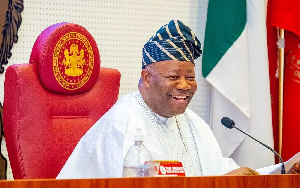Group Managing Director, United Bank for Africa (UBA) Plc, Oliver Alawuba has explained the potential and gains of the $30 billion Chad Connection 2030 plan to the continent and global economies.
In his keynote speech delivered at the UAE-Chad Trade & Investment Forum in Abu Dhabi, UAE, Alawuba said that Africa has grown from the point of merely having potential to executing such great ideas.
Speaking on the theme: “Financing African Competitiveness – Building Bridges, Powering Progress”, he said: “For too long, the narrative around Africa has been one of potential. But I stand before you today to declare that the era of potential is over. We are now in the era of execution. And what we are witnessing in Chad is a masterclass in how to make that shift.”
Alawuba said the $30 billion Chad Connection 2030 plan is not just a document, but a declaration of intent.
He said: “It is a detailed roadmap to move a nation from the periphery to the very heart of global economic competitiveness. With its 268 projects targeting infrastructure, industrialization, and human development, it understands a fundamental truth: competitiveness is not born in boardrooms; it is built on the ground.”
This brings me to the core of my message today. A plan of this magnitude poses one critical question:
Speaking further on financing the future, he said: “It means understanding that a reliable power grid is the foundation of industrial growth. Chad’s target of 60 per cent electrification by 2030 will enable factories to operate, cold chains for agriculture to function, and the digital economy to flourish”.
“It means recognizing that water access for 11 million additional people drives economic transformation. Safe water reduces healthcare burdens, enables food processing industries, and unlocks agricultural productivity across the value chain,” he added.
“It means seeing the strategic value in infrastructure. When we finance a road, we finance market access. When we structure a PPP for renewable energy, we finance both climate resilience and energy independence. When we support digital payment systems, we create the foundation for inclusive economic growth. And it is built with governance that assures an investor that their capital is safe, and their project will be seen through,” he stated.
Alawuba said the bank believes that the capital to transform Africa exists, both within and outside our continent.
“The challenge has never been a lack of capital, but a lack of bankable structures and credible partnerships, including huge domestic capital misalignment. According to the Africa Finance Corporation (AFC), Africa’s domestic financial assets are estimated to total approximately $4 trillion ($2.5 trillion in Commercial Bank Assets, $725 billion in Foreign Reserves and others, $455 billion in Pension Assets and $320 billion in Insurance Assets), but less than 15 per cent of these assets are currently channeled into productive infrastructure essential for growth. This is the gap we bridge,” he said.
“At UBA, our commitment is two-fold: we are both architects of national infrastructure and champions of grassroots financial inclusion. Here in Chad, this is not a promise; it is a proven track record. We have already committed over $102 million in direct investments in the State of Chad’s securities and have been the lead financier on critical national projects – from a $49 million domestic gas project to bring clean energy to households, to a $6.7 million wind farm in Amdjarass and essential funding for road maintenance and telecom modernization. This demonstrates a deep, vested partnership with Chad’s development agenda,” he added.
Business News of Wednesday, 12 November 2025
Source: www.thenationonlineng.net













